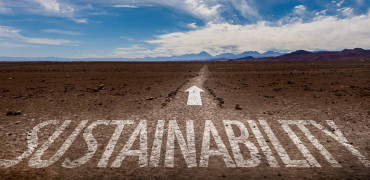First of all, I hope you and yours are well, at the end of what has been another challenging year of vaccines, upheaval and some unintended hibernation, although we have tentatively returned to some sort of normality.
Of course, there is a general sense of dread that Omicron is going to be an omnipresent danger, despite widespread vaccination, but we have to hope that it’s not as deadly as may have been feared, as many reports believe.
I haven’t heard much about this or the Taskforce since, have you?
Cancelled
Cancel culture is something that is bedevelling a lot of other areas of society.
Sadly in housebuilding (like trying to organise anything in the time of Covid), it has been a year of undercooked proposals subject to change, if not imminent cancellation.
Early in 2021, before anyone was concerned about new, mutant strains of Covid continuing to ruin everyone’s lives, we were exercised about a ‘mutant algorithm’ that had been introduced into the planning system.
This would have seen a lot of homes built in rural areas previously guarded as sacred ground – particularly in southern, staunch Tory seats.
Many backbenchers including Theresa May (remember her?) rose in considerable panic, and it wouldn’t be long before another genuine although misguided attempt to try and revolutionise the planning system bit the dust.
Grown-up discussions
As we proceeded through spring, the reality of the Future Homes Standard started to dawn (at least for those who had heard of it – according to our Industry Viewfinder reader survey in October only 22% of housebuilders had).
The deadline for the interim cut of 31% of carbon was pushed back until mid-2022, but this only made the full cut of 75%-80% fewer emissions by 2050 a more pressing target.
Thankfully, some very grown-up discussions around how heat pumps can work with radiators and UFH, and how hydrogen might not be the panacea, are now happening.
Unfortunately in March the Green Homes Grant was kicked into touch, another embarrassing failure of the centre to produce a proper, fit for purpose incentive for upgrades.
Since its launch in summer 2020, the scheme, which was run through local authorities had achieved a tenth of its targets – pathetic, in the context of the UK holding COP26 later in 2021.
It has since been resuscitated, with a much-derided £5K loan for heat pumps, only around half what’s needed.
Blown out the water
Back in April, I looked at the National Model Design Code, a fairly innocuous development in the context of everything else going on!
By June it was blown out of the water by the Chesham and Amersham by-election, which saw a Lib Dem overturning a long-held Conservative majority (as has just happened in North Shropshire, a different ward with different motivations).
No, in leafy Chesham and Amersham, the natives were revolting in their green belts – partly against proposed changes to planning legislation that would see more homes built in their back yard, as well as what HS2 was doing to the area.
Until we tackle the issue of how to persuade such influential voters that building homes isn’t by its nature a travesty, we’ll never get anywhere near the 300,000 needed.
Insulate, insulate insulate
The industry began to make concerted noises around tackling zero carbon this year, with the Future Homes Taskforce producing a Road Map of approaches.
I haven’t heard much about this since, or the Taskforce however, have you?
Meanwhile as fires raged across the world, Insulate Britain got headlines by lying down on motorways, bringing a strange juxtaposition of a seemingly innocuous building material, and the kind of direct action that gets people imprisoned.
Their causes may be just, but their methods have alienated many across the country.
Good COP, bad COP
Was COP26 a ‘cop out’? Well it was many things, but there were some undeniable compromises, such as allowing India to force the issue on retaining coal, and having no China there at all.
Any talk of UK construction got largely lost in the fevered political turmoil, but behind the polarised arguments there were practical sessions on what needs to happen now to cut carbon.
The energy crisis is of course helping to force decisions on moving away from gas, and this could turn out to be the big battle of the next few years in UK construction, although the solutions are there.
I’d love green hydrogen to become a mainstream option, but I highly doubt it will happen soon, and the Government has swerved a decision until 2026.
Electric economy
It is the age of (decarbonised) electricity, but there are so many questions, such as can the grid cope?
As ever, the common-sense argument is to reduce demand wherever possible, but in a Northern European climate, it will always be there.
The load placed by moving to EV cars is going to be a intensifying concern, but we are facing an existential issue globally, so the big compromises are needed.
Covid’s continued grip on the world is perversely continuing to reduce global emissions, which is one perhaps bizarre benefit of what is otherwise a depressing and persistent part of life in the early 21st century.
Building safety
The other major focus will continue to be building safety, post-Grenfell, and the current Building Safety Bill is going to cause wide impact across housebuilding.
It includes a further overhaul of the Building Regulations, arguably grossly inadequate to deliver robust management of building design and construction on fire.
This is on top of the changes to Part L and Part F for the Future Homes Standard – we are going through a long overdue shake-down of everything that is wrong with construction, the question is whether the proposed answers will work in practice.
I haven’t even mentioned the materials and skills shortages partly caused by Brexit, and the inflation that is going to be a factor in coming months. But I’d like you to try and have a happy, relaxing Christmas, so let’s leave that for next year.
All the best for a good 2022!
James Parker is editor of Architects Datafile




